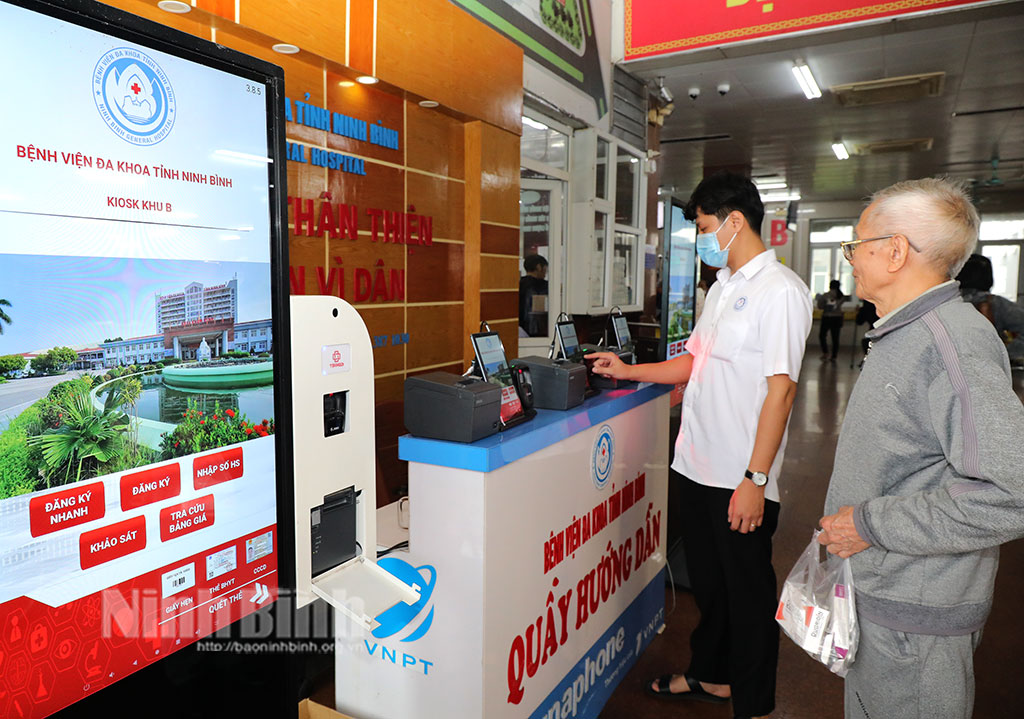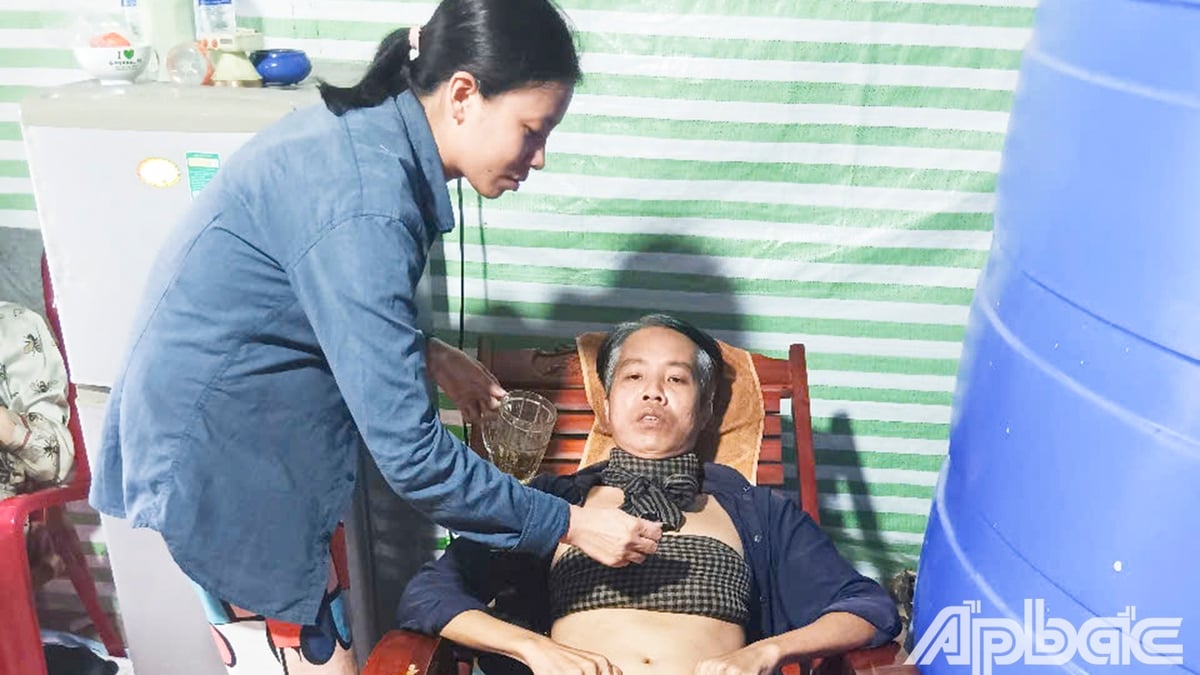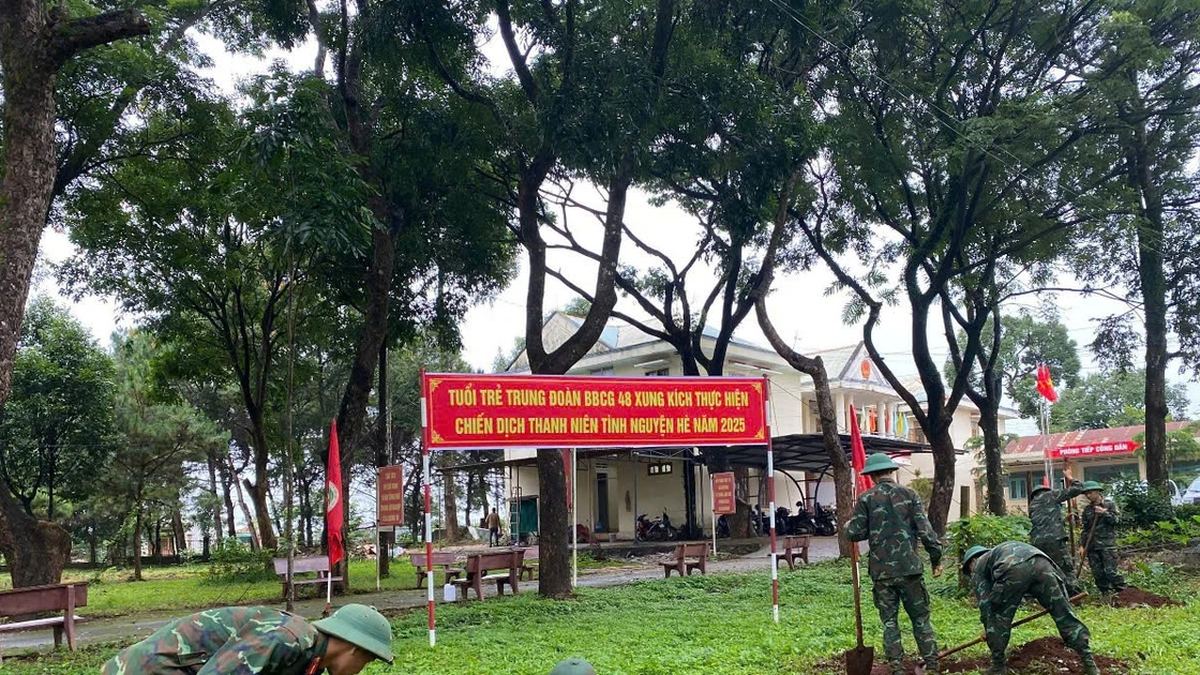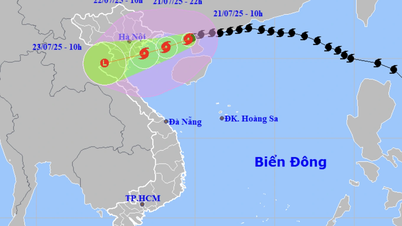Reporter (PV): According to the forecast of the National Center for Hydro-Meteorological Forecasting, the summer of 2024 will maintain high temperatures. What do you think about the epidemic situation that can easily arise in the current hot weather conditions?
Doctor Tran Van Thien: Every year, in the summer, the hot and humid weather in the Northern region creates favorable conditions for disease vectors to thrive, people's movement is high, while people's awareness and practice of disease prevention and hygiene are not good... these are favorable conditions for epidemics to arise and develop, especially diseases transmitted through the digestive tract, respiratory tract, and mosquito-borne diseases such as: diarrhea caused by Rota virus, hand, foot and mouth disease, dysentery, typhoid, measles, flu, dengue fever, viral encephalitis, meningococcal meningitis...
Furthermore, the rate of children vaccinated with necessary vaccines such as diphtheria, whooping cough, measles, rubella, Japanese encephalitis... in the recent period has not reached the expected level, which will create an immune gap in the community, combined with the fact that in the summer there will be many group activities and large gatherings, leading to the risk of pathogens spreading and increasing the number of cases if drastic prevention and control measures are not implemented before the epidemic season.
In addition, there is a risk of dehydration and electrolyte loss due to excessive sweating, especially for people working in the hot sun. Dehydration and electrolyte loss will make the heart beat faster, blood pressure may drop, even cardiovascular collapse, causing the body's resistance to decrease along with hot weather, food is easily spoiled, rotten, the habit of eating uncooked food (blood pudding, sour sausage, rare beef...) can easily lead to food poisoning.
For Ninh Binh province, in the first 4 months of 2024, the number of cases of the above infectious diseases also tended to increase compared to the same period in 2023, specifically: 5 cases of whooping cough; 1 case of measles; 2 cases of Rubella; 13 cases of dengue fever and 2 outbreaks were recorded; 43 cases of hand, foot and mouth disease; 1 case of typhoid; 117 cases of chickenpox; 7 cases of bacillary dysentery; 47 cases of viral hepatitis; 2 cases of malaria.
Another noteworthy point is that in the first 4 months of 2024, there were about 1,400 cases at risk of exposure to rabies due to dog, cat and other animal bites requiring preventive treatment, 2.5 times higher than the same period in 2023. With the above figures, we see that the risk of disease outbreaks in Ninh Binh province is possible this summer if there are no drastic measures in disease prevention and control work from the localities early on.

PV: Doctor , how is the Provincial Center for Disease Control implementing disease prevention and control during the hot season?
Dr. Tran Van Thien: To effectively control summer epidemics in the province, the Ninh Binh Provincial Center for Disease Control has developed and implemented a Summer Disease Prevention Plan; advised on the issuance of documents directing the implementation of summer disease prevention activities, especially infectious diseases circulating in the locality such as: Whooping cough, measles, hand, foot and mouth disease, dengue fever, Japanese encephalitis, rabies... At the same time, guide the Medical Centers of districts and cities to deploy disease prevention work. Organize inspection and supervision teams to support the prevention and control of some epidemics in high-risk localities. Request units to coordinate with local authorities and departments and organizations to effectively implement activities to prevent and control infectious diseases. Regularly update regulations and procedures on monitoring and handling infectious diseases at risk of outbreaks to deploy training/retraining for medical staff at all levels.
Surveillance and outbreak management are the key and top priority activities. Strengthen routine surveillance and event-based surveillance at treatment facilities and in the community, ensuring that all cases of confirmed/suspected infectious diseases are investigated and monitored in accordance with regulations. Conduct case surveillance and vector surveillance at recorded outbreaks, while providing guidance and implementing environmental sanitation and chemical spraying to thoroughly handle outbreaks; integrate direct communication and provide guidance on preventive measures for high-risk groups at outbreaks, ensuring timely control and preventing outbreaks and spread.
The unit also prepares a stock of medicines, chemicals, equipment, and biological products for epidemic prevention. Strengthens mobile epidemic prevention teams and rapid response teams, ready to investigate, verify, assess, handle outbreaks, and support lower levels in controlling epidemics when necessary.
Vaccination work is also being promoted to increase vaccine coverage in the community, especially in the current context, strengthening the review and implementation of catch-up and catch-up vaccination for subjects of vaccination age is extremely important.
In parallel with the above activities, the Center promotes communication activities in many forms, especially on social networking platforms to raise people's awareness in proactively taking measures to prevent and control epidemics at each time.
PV: To proactively protect health and prevent diseases during the hot season, what recommendations do doctors have for people?
Doctor Tran Van Thien: To prevent infectious diseases, it is necessary to combine specific and non-specific prevention and control measures, specifically:
To prevent and control specifically through vaccination, people need to: Vaccinate children on schedule, with sufficient doses according to the recommendations of the expanded immunization program: Vaccines against tuberculosis, diphtheria-pertussis-tetanus, meningitis caused by Hib, hepatitis B, polio, Japanese encephalitis, measles, rubella. In addition, consider giving children some vaccines in service vaccination such as: Vaccines against diarrhea caused by Rota virus, pneumococcus, meningitis caused by meningococcus, influenza, chickenpox...
For older children or adults, some vaccines are also needed: Re-vaccination against Hib meningitis, diphtheria-pertussis-tetanus, Japanese encephalitis for older children. At the same time, vaccinate against chickenpox, influenza, pneumococcal, meningococcal meningitis for high-risk subjects, especially women preparing to become pregnant, the elderly, people with underlying medical conditions...
For non-specific prevention and control through measures: Practice personal hygiene, wash hands regularly with soap, especially before preparing food, before eating, after going to the toilet; clean nose and throat daily with salt water; Implement food safety measures: eat cooked food, drink boiled water, choose fresh food, clear origin. Do not abuse cold water, ice water. Need to drink enough water every day, adults is 2 liters of water, children drink when thirsty; eat lots of vegetables and fruits to supplement vitamins and minerals, help increase the body's resistance; clean the surrounding living environment, handle objects, places where water can stagnate, do not let mosquito larvae grow, from which mosquitoes causing dengue fever have conditions to develop; Clean your home daily by wiping down surfaces, daily contact objects, doorknobs, stair handrails, table/chair surfaces, floors, children's toys, and school supplies with soap or regular detergents.
Sudden hot and cold should not occur, especially in the elderly, children, and people with chronic diseases. If using air conditioning, the temperature should be around 25-27 degrees and the cold air should not be blown directly on the body.
When detecting a case of infectious disease, it is necessary to isolate according to regulations for some diseases with high risk of transmission through the respiratory and digestive tracts. Go to a medical facility immediately for timely examination and treatment, do not arbitrarily buy medicine to treat at home; let students stay home from school when they have an infectious disease to limit the spread in schools. Actively coordinate with specialized agencies and local authorities in disease prevention and control in the area of residence.
PV: Thank you doctor!
Phan Hieu (Implementation)
Source























![[Photo] National Assembly Chairman Tran Thanh Man visits Vietnamese Heroic Mother Ta Thi Tran](https://vphoto.vietnam.vn/thumb/1200x675/vietnam/resource/IMAGE/2025/7/20/765c0bd057dd44ad83ab89fe0255b783)











































































Comment (0)